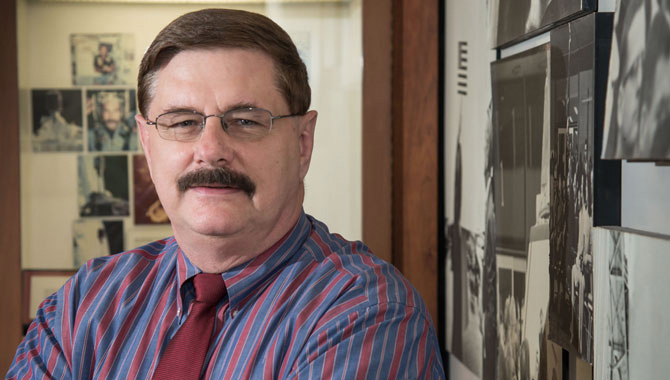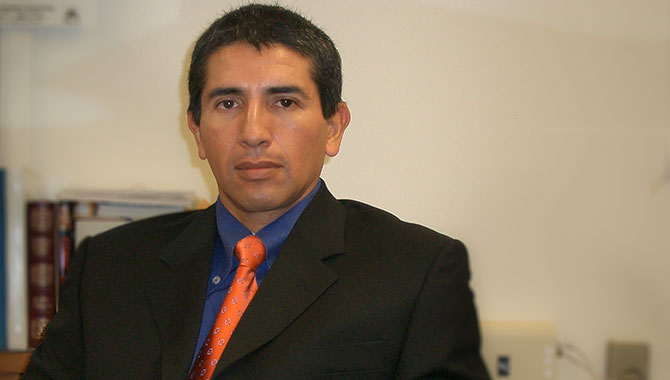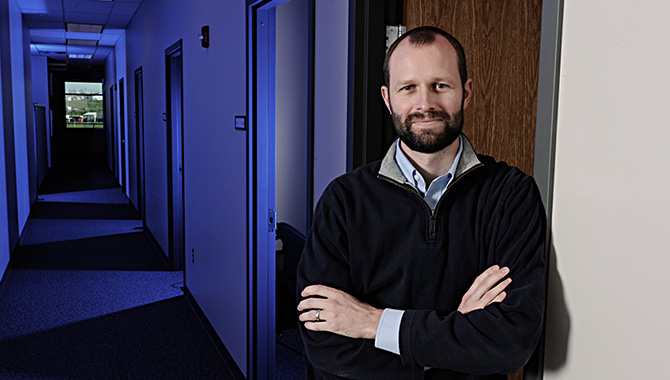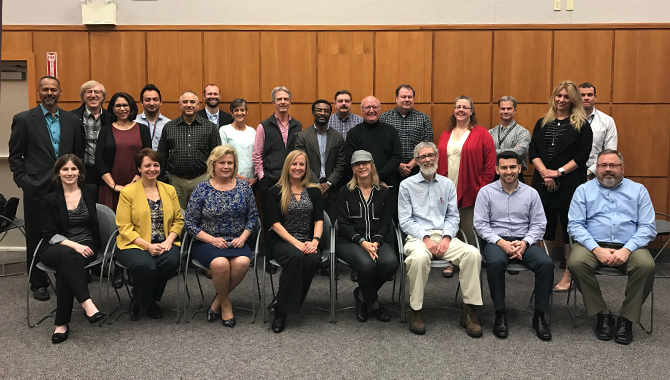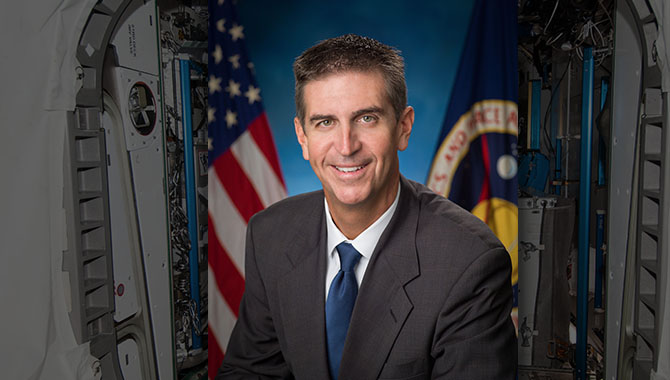
NASA OCHMO Knowledge Services Lead Mark Weyland.
Photo Credit: NASA/Robert Markowitz
Mark Weyland discusses knowledge sharing in NASA’s Office of the Chief Health and Medical Officer.
Mark Weyland is the Knowledge Services Lead for NASA’s Office of the Chief Health and Medical Officer (OCHMO). Weyland is the Associate Director of Human Capability Integration in the Human Health and Performance Directorate at NASA’s Johnson Space Center (JSC). He is responsible for developing a comprehensive agency-wide approach to the human as a system and works across multiple JSC directorates and NASA centers to fully integrate the human as a system for effective human system risk management. Weyland joined NASA JSC in 2004 as Manager of the Space Radiation Analysis Group and has held positions as Human Resources Deputy Director, Space Medicine Division Deputy Chief, and Environmental Factors Branch Chief. He holds a bachelor’s in radiological health engineering and a master’s in health physics from Texas A&M University.
What are some of the most prominent knowledge challenges in your organization?
Being in the health, medical and performance sector of NASA is always a challenge since NASA is primarily an engineering agency. The languages of both disciplines don’t always match up, and it can make communicating risk difficult. There is a tremendous amount of health and medical knowledge gained since human spaceflight began, and those lessons are captured in many books, databases, webinars, etc., but we’ve found translating them into engineering-speak is key and isn’t automatic.
Are there any successful knowledge efforts in your organization that you’d like to highlight?
The most successful knowledge effort from my past was when we were forced to use a knowledge management tool using specific metrics on how often and how much we contributed to the tool. No one liked the idea of using it or being forced, but over time it became part of the culture and a very useful tool that people started relying on and continued to use even after I left.
Are there knowledge management efforts — either within NASA or other organizations — that you find particularly remarkable or innovative?
The DOD has been doing what we’re now calling Capability Leadership Model (CLM) for a long time. They bring together discipline experts from across the DOD to work together for the greater good of each subcomponent of the military complex. We have just started doing this in earnest first with the Technical Capability Assessment effort and now with the CLM. Hopefully, it will gain traction and become part of our culture going forward.
What’s the biggest misunderstanding that people have about knowledge?
That knowledge is static. In my experience, it is constantly changing as well as the methods with how you learn about the changes. It does take some effort to keep up with new developments and new knowledge, but the payoff is worth so much more than the investment — a good return on investment in my opinion.






